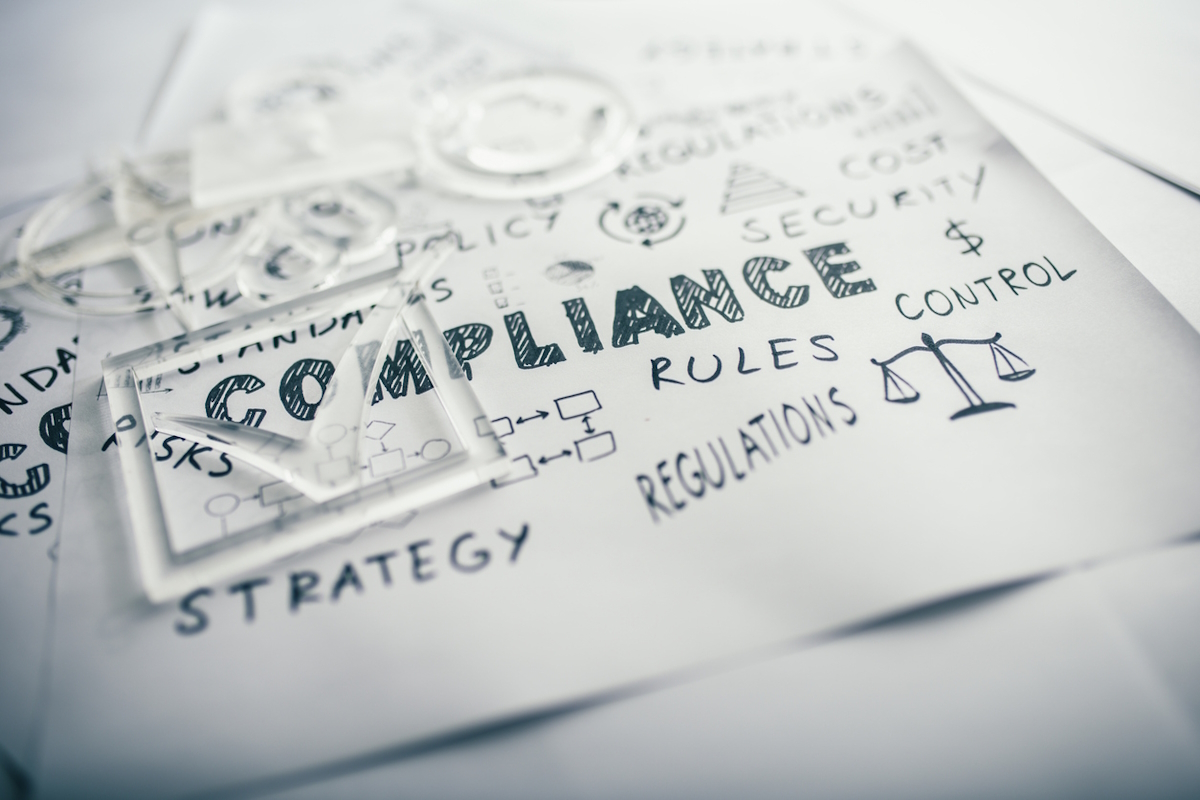Managing information security compliance

Rena Ding at AuditBoard explains why security compliance is important to any organisation, and describes how to get started on managing it
Security compliance is an ever more important part of business nowadays, especially in the expanding digital, integrated world, so having strong cyber-security measures and a security compliance plan in place are essential to protect sensitive data and ensure your company has a solid security posture.
Ignoring security standards can lead to serious problems - not least of all data breaches, financial loss and the resulting damage to an organisation’s reputation and customer trust in the business.
Being informed about the various compliance requirements like HIPAA, PCI DSS and GDPR is essential for meeting regulatory demands and safeguarding any sensitive, confidential or personal data that your company holds.
This article will reveal which key security compliance laws and standards every business should know about, while offering some insights on best practices for managing compliance and cutting risks. By the end, you’ll see how compliance can help your business thrive while keeping data safe and sound.
What is security compliance?
Data breaches make information security a priority for companies worldwide, on a daily basis. Safeguarding sensitive information is where security compliance comes in. It is like a set of armour for your data, protecting against constantly developing cyber-threat attack methods and ensuring data is accurate and reliable, without corruption,
Security compliance standards cover everything from data encryption to access controls and regular risk assessments, and audits. Compliance guidelines push companies to ensure they have the right controls in place to keep unauthorised users out or they will face hefty fines for non-compliance.
Meeting these standards isn’t just about avoiding penalties though. It is also creating a security framework that can handle any potential risks, security breaches and threats. Compliance encourages businesses to review and update their security policies and systems regularly.
This proactive stance helps businesses adapt to new threats, technologies and regulatory changes, ensuring they maintain an ongoing protection of any sensitive data they hold, but also a long-term security resilience.
Importance of compliance in cyber-security
Cyber-security is a shield protecting our computers, phones, tablets and the data they hold away from any unwanted users, like cyber-criminals. By adhering to regulatory rules, any organisations in those industries can ensure they are navigating the complex legal landscape to avoid any legal issues caused by unprotected personal and financial information or data breaches.
For example, healthcare relies on HIPAA to protect patient details, while the payment card industry follows PCI DSS standards to keep cardholder data safe. The finance industry uses tough frameworks to protect financial transactions and customer information.
Failing to comply with the relevant compliance regulations and statutory guidelines will only damage customer trust and hurt an organisation’s reputation. In healthcare, where patient privacy is critical, or finance, where consumer financial information is at risk, non-compliance with standards like HIPAA or PCI DSS can have massively negative results.
Aside from incurring legal penalties, companies will likely lose business by failing to meet strategic security compliance goals. Achieving and maintaining compliance shows that your business is committed to strong cyber-security practices and can be trusted with customer and third-party data handling.
Financial impacts of security compliance
Security compliance affects both immediate financial health and long-term profitability. Following regulatory requirements and setting up strong security measures can protect against the high costs of data breaches, which include direct financial losses and steep fines for non-compliance.
But not meeting security standards also exposes businesses to more than just immediate financial penalties. Losing customer trust after a breach can impact ongoing sales and revenue potential, thereby undermining long-term profitability.
Ensuring your company has no compliance issues shows a commitment to protecting all in-house, third party and external data, which will only boost your reputation. Investing in security compliance helps avoid the financial pitfalls of non-compliance and data breaches, but it enhances market position, contributing to your organisation’s success, which leads to a healthy overall business economy.
Key security compliance laws and standards
There are a variety of security compliance programs and standards, each of which act as a roadmap for advising businesses on the security measures they need to have in place:
- GDPR: The General Data Protection Regulation protects customer data and privacy in the European Union, with an emphasis on consent and individual control over their own data.
- CCPA: The California Consumer Privacy Act gives California consumers more control over their personal information collected by businesses, with an opt-out for data sales at their request.
- SOC: Service Organisation Control reports, especially SOC 2, provides independent verification of security at an organisation, with a focus on non-financial reporting controls related to security, availability, processing integrity, confidentiality and privacy.
- HIPAA: The Health Insurance Portability and Accountability Act protects patient health information (PHI) and is mandatory for healthcare providers and related entities across the healthcare sector.
- PCI DSS: The Payment Card Industry Data Security Standard ensures companies that handle credit card information protect cardholder data through secure networks and strong access control measures.
- ISO 27001: This international standard outlines all of the requirements for an information security management system (ISMS), including people, processes and IT systems using a risk-based management approach, guarantee the confidentiality, integrity and availability of all sensitive company information.
Best practice for security compliance management
These are the top tips I recommend for businesses to be sure they meet all required regulations:
- Stay updated with regulations: The cyber-security and data protection landscape is always changing so keep your eyes open for any regulatory changes and be sure to keep your compliance team informed about them all.
- Establish a comprehensive security policy: Create an Information Security Management System (ISMS) that covers all processes and data handling practices, then review and update it to encompass changing cyber-threats and business processes.
- Conduct thorough risk assessments: Understand your organisation’s unique risk profile by conducting comprehensive risk assessments, with a focus on vulnerabilities that may be specific to your particular industry.
- Foster collaboration across teams: Engage various departments like IT, legal, human resources and business units to develop a holistic understanding of the security landscape. By having everyone on the same page, your security objectives and everyone’s understanding of their role in assisting the company to achieve compliance will be aligned.
- Continuous monitoring and reporting: Use automated tools for real-time monitoring of security systems and networks. This proactive approach will capture security risks quicker to allow for more timely reporting of any problems before they occur.
- Maintain documentation and evidence of compliance: Keep comprehensive records of risk assessments, security controls, training activities and incident response efforts. This record will be invaluable for internal audit and to show your efforts to external auditors and regulatory bodies.
Achieving security compliance with confidence
Navigating security compliance can seem like a complex challenge, but understanding the importance of compliance frameworks, implementing robust security controls and managing risks are key steps towards safeguarding data and ensuring data privacy.
A dedicated security team that knows about compliance regulations is essential and, when used alongside the right technology, especially automation and compliance management software, can make streamlining security compliance easier and quicker.
With the right tools and practices, businesses can confidently achieve security compliance, protecting themselves in an increasingly digital and regulated world. A thorough approach to security compliance will only contribute to your business’ success.
Rena Ding is Product Manager at AuditBoard
Main image courtesy of iStockPhoto.com and Warchi

Business Reporter Team
Most Viewed
Winston House, 3rd Floor, Units 306-309, 2-4 Dollis Park, London, N3 1HF
23-29 Hendon Lane, London, N3 1RT
020 8349 4363
© 2024, Lyonsdown Limited. Business Reporter® is a registered trademark of Lyonsdown Ltd. VAT registration number: 830519543





